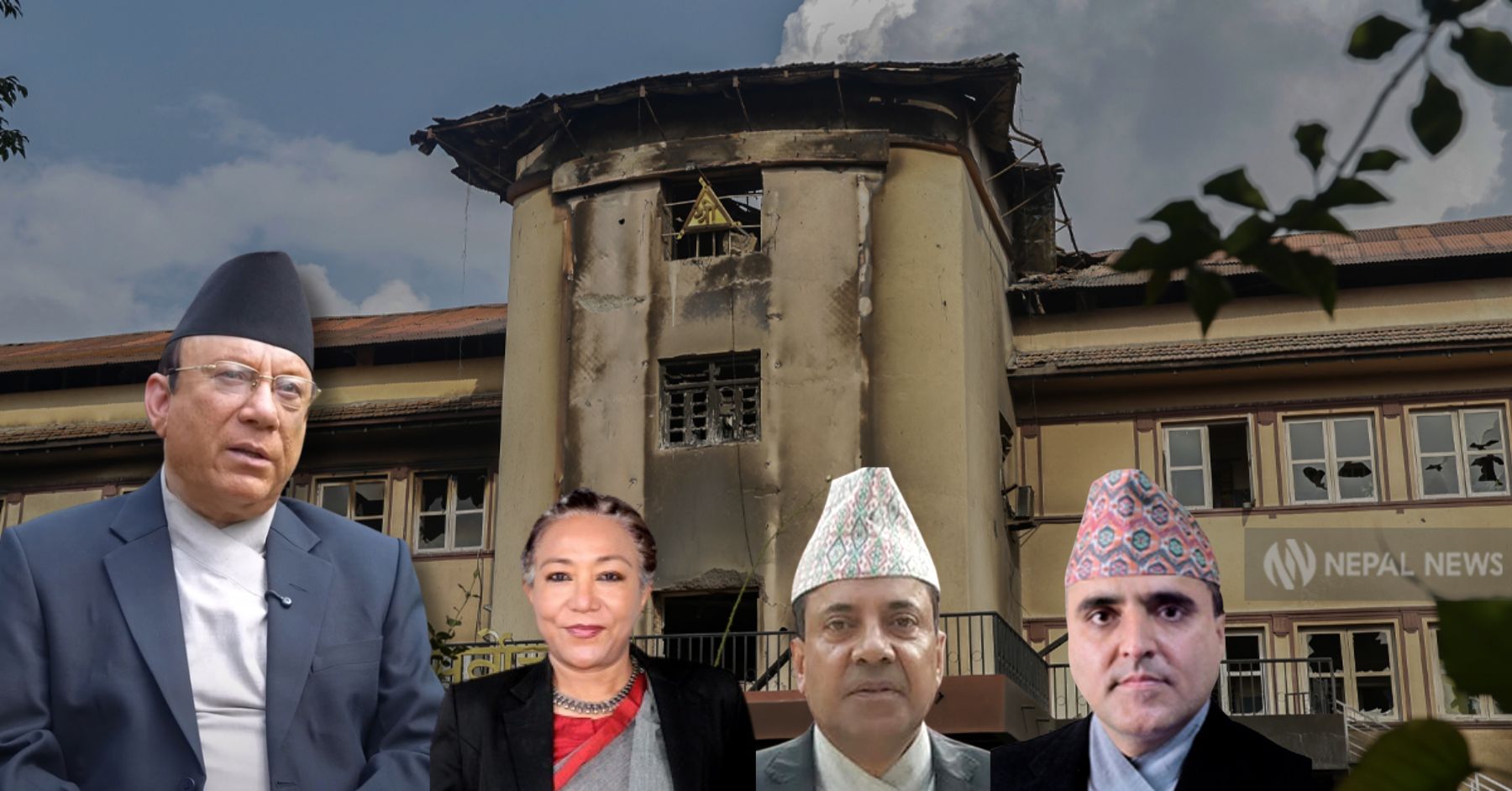

KATHMANDU: The Chief Justice of the Supreme Court, Prakash Man Singh Raut, accompanied by two Justices, Sapana Pradhan Malla and Binod Sharma, and the Supreme Court’s Chief Registrar, Bimal Poudel, is currently on an observation visit to the Supreme Court of Bangladesh.
The team, which arrived in Dhaka on Saturday at the invitation of the Chief Justice of Bangladesh, Syed Refaat Ahmed, is scheduled to return to Nepal on November 4, according to a statement issued by Supreme Court spokesperson Arjun Prasad Koirala.
The Supreme Court, which was destroyed by fire during the Gen Z protests on September 9, has recently resumed work by pitching tents.
The Kathmandu District Court, which was also destroyed by fire, is forced to provide services from another building. A total of 23 courts across the country were set ablaze during this movement, along with the Supreme Court.
According to Supreme Court data, nine hundred thirty-three thousand eight hundred twenty-three (933,823) case files at the Supreme Court and seven hundred six thousand seventy-one (706,071) case files in other courts were destroyed by the fire.
Four hundred twenty-two (422) vehicles within the court premises were also burned.
The buildings of the Tulsipur High Court, Butwal Bench of Tulsipur High Court, and the Hetauda bench of the Patan High Court were also destroyed in the protest.
In this dire situation, where the judiciary led by him is burnt and struggling to operate, the Chief Justice Raut’s decision to travel abroad with a team is not only indecent but can be deemed unnecessary and inappropriate. Criticism has begun that the priority of the Chief Justice and the judiciary should be focused on managing the internal crisis rather than external relations, but it appears otherwise.
Former General Secretary of the Nepal Bar Association, Lilamani Poudel, states that the visit of Chief Justice Raut and his team to Bangladesh at such a time is unfortunate. Poudel says, “It would have been better not to travel at all in the current situation; the focus should have been on how to operate the judiciary without disruption,” adding, “But their priority seems to be elsewhere. The visit merely looks like they went to ‘see the country and change the mood’.”
Advocate Baburam Aryal, a working committee member of the Nepal Bar Association, also says that the responsibility of the head of the judiciary should be on internal matters, and the visit does not reflect that.
“The judiciary was subjected to a huge attack. The intent of the attackers was for it not to be able to resume operations. In such a situation, there should have been more focus on internal issues,” Aryal says.
Coincidentally, two years ago, the strongly-backed government of Sheikh Hasina in Bangladesh fell due to a student uprising. The parliament building, along with the Prime Minister’s residence and the Chief Justice’s residence, was also attacked.
Subsequently, Prime Minister Hasina left the country and took refuge in India, while the Chief Justice also resigned. Following this, a civilian government, led by the renowned economist Muhammad Yunus, was formed to conduct elections, similar to the situation in Nepal.
One might argue that the visit is timely because the situation is similar to that in Bangladesh. However, even if that were the case, this time is not appropriate.
Advocate Aryal says, “Even if the purpose is to understand and learn that our situation is similar to Bangladesh’s, it would have been better if the first and second ranking officials did not travel abroad simultaneously during this crisis.”
The senior-most Justice Pradhan is set to become the Chief Justice in March next year.